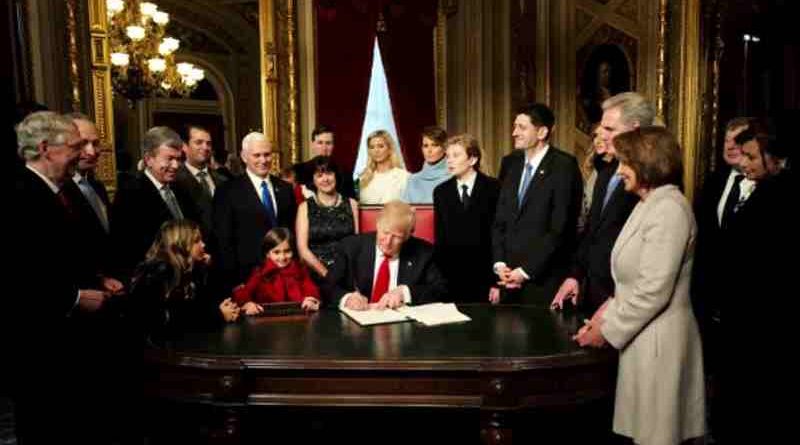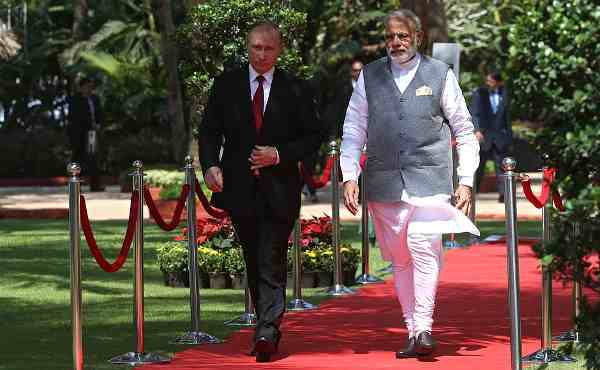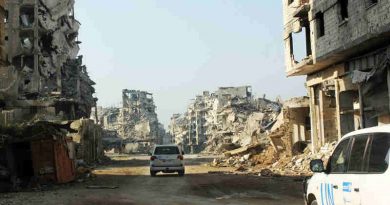Finally, Trump Expels Russian Intelligence Officers from the U.S.

The Trump Administration ordered the expulsion of Russians from the U.S. following similar actions taken by other countries.
By Rakesh Raman
After a long dilly-dallying, President Trump finally ordered the expulsion of dozens of Russian intelligence officers from the U.S.
According to a White House Statement released Monday, the order also specifies the closure of the Russian consulate in Seattle. With these steps, the statement added, the U.S. and its allies and partners make clear to Russia that its actions have consequences.
Earlier, Trump has alawys been reluctant to take any action against Russia and its President Vladimir Putin because it is laegely believed that Russia and Putin had helped Trump win the 2016 presidential race fraudulently.
Currently, special counsel Robert Mueller is leading an investigation to know the extent of Trump-Russia ties that may have helped Trump win presidential election.
The Trump Administration ordered the expulsion of Russians from the U.S. following similar actions taken by other countries in the wake of the allegation by the United Kingdom that Russia was behind an attack using a deadly nerve-agent in Salisbury on 4 March, which left Sergei Skripal and his daughter, Yulia, hospitalized in critical condition.
[ Did Russian Interference Change the Result of 2016 U.S. Election? ]
On 14 March, according to the UN, the UK brought the charge before an urgent meeting of the UN Security Council, where U.S. Ambassador Nikki Haley said that the U.S. stood in solidarity with the UK in denouncing the “crime” and believed Russia had been responsible for the attack.
Today, President Trump ordered the expulsion of dozens of Russian intelligence officers from the U.S. and the closure of the Russian consulate in Seattle. With these steps, the U.S. and our allies and partners make clear to Russia that its actions have consequences. pic.twitter.com/rfGFXXrUlH
— The White House (@WhiteHouse) March 27, 2018
At the same meeting, both Russia and the United Kingdom said the incident should be investigated by the Hague-based Organisation for the Prohibition of Chemical Weapons (OPCW), the UN-backed body which works to implement the Chemical Weapons Convention (CWC) and eliminate chemical weapons use, and the threat of their use.
The UK Foreign Ministry announced later that independent investigators from the OPCW were due to arrive in the UK on Monday, 19 March to kick off their probe into the nerve agent used in the Salisbury attack.
The accusation was met with a firm denial from the Russian Ambassador to the UN, Vassily Nebenzia, who said that a letter sent by British Prime Minister, Theresa May, to the President of the Security Council, outlining the attack, constituted a “threat to a sovereign State.”
The UK Deputy Permanent Representative, Jonathan Allen, said that Russia was “in serious breach of the Chemical Weapons Convention (CWC)” through its failure to disclose the existence of the Soviet-era Novichok programme – the name of the nerve agent which the UK says was used in the attack on Sergei Skripal and his daughter, in the English city of Salisbury, on 4 March.
The UK Prime Minister wrote to the Council on Tuesday, saying that following a “thorough investigation,” either the Russian Government was behind the attack, or alternatively, had lost control of the nerve agent to a non-State actor.
The Convention, which came into force in 1997, outlaws the production, stockpiling, and use of chemical weapons and their precursors.
By Rakesh Raman, who is a national award-winning journalist and social activist. He is the founder of a humanitarian organization RMN Foundation which is working in diverse areas to help the disadvantaged and distressed people in the society.




